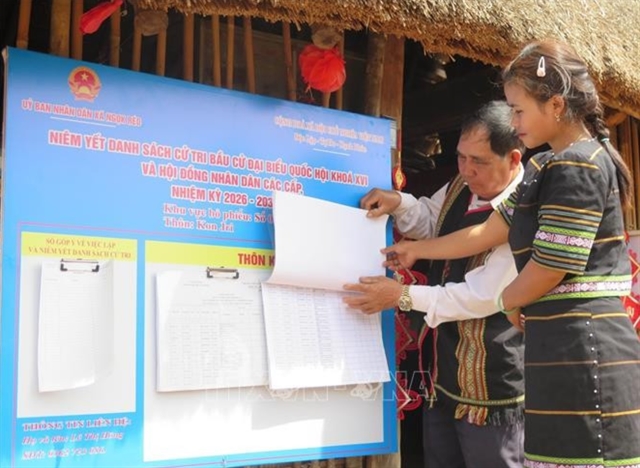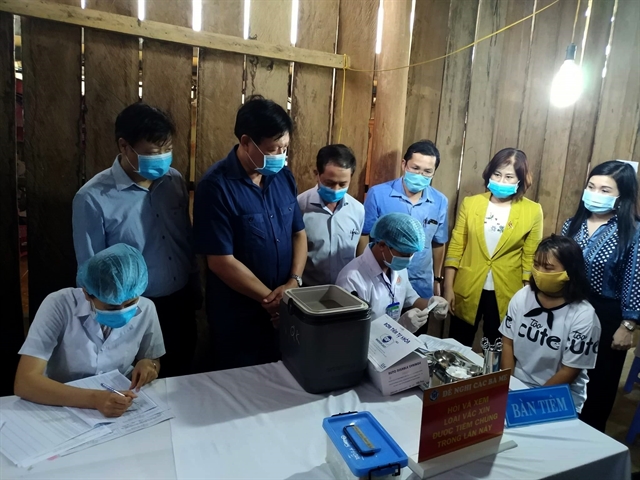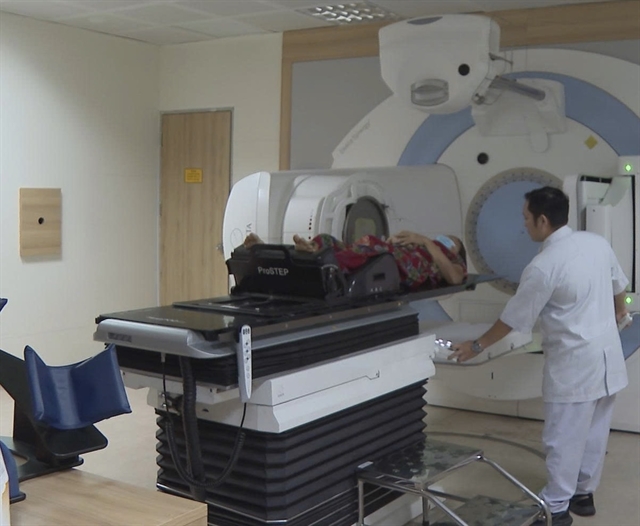 Opinion
Opinion
.JPG)

|
| Deputy health minister Đỗ Xuân Tuyên (third from left) inspects diphtheria vaccination at Quảng Hoà Commune in the Central Highlands Province of Đắk Nông on June 28. The province has witnessed a diphtheria outbreak with 25 infection cases and two deaths so far.— VNA/VNS Photo Hưng Thịnh |
Vietnam News Agency speaks to Professor Đặng Đức Anh, Director of Việt Nam’s National Insitute of Hygiene and Epidemiology, on the ongoing outbreak of diphtheria in the Central Highlands and the critical need for sufficient vaccination.
Can you give us an explanation regarding the cause of recent diphtheria outbreaks in the Central Highlands?
Epidemiological investigation shows that the main cause of recent diphtheria outbreaks is due to improper immunisation – either insufficient shots or immunisation not according to the schedule. Many cases have only received one or two vaccine injections while the recommended doses for children under one-year-old is three, and a repeat vaccination when the child reaches 18 months old.
The discovered diphtheria cases were concentrated mostly in the remote mountainous area, where vaccination rate does not reach 95 per cent as required by the National Expanded Programme on Immunisation (EPI).
In the 2019-20 period, the vaccination rate in some localities in the country was not up to expectations, due to a number of factors, including the public’s hesitance following reports of adverse vaccine reactions, a growing anti-vaccination movement in major cities, and the coronavirus pandemic.
There were talks of lowered immune responses against diphtheria. What is your opinion on this?
The recent spike can be attributed to the unsatisfactory vaccination coverage in the areas that have witnessed outbreaks.
Even if a child is given four vaccine shots as recommended, he or she might still have lower immunity against the disease up to a certain age, so they might need a repeat vaccination to ensure protection against the bacteria.
Currently, there are also vaccines against diphtheria or tetanus available for seven-year-old children or even adults. Therefore, to deal with the risks of these diseases, we recommended a wide additional vaccination campaign to get to people that have not been sufficiently vaccinated.
In the past few months when COVID-19 in the country was complicated, vaccination was put on hold for some time, but later we issued guidance for local health authorities to organise catch-up vaccination drives for children who were supposed to get the shots during the hiatus.
There are ample lessons to learn from other countries, where for whatever reasons, vaccination for a disease was either halted or the rate declined, leading to eventual outbreaks, and sometimes large-scale outbreaks. People who are not immunised against a certain preventable disease will accumulate and the community will have little to no defence against a pathogen once it makes an appearance.
What studies have we done on diphtheria immune response among Vietnamese population?
A recent study conducted among women aged 18-25 in the northern province of Hải Dương showed a declined immune response against diphtheria, this is one of the age groups that we recommend to have a repeat vaccination.
Similarly, another study done in Hà Nam Province concerning subjects aged 20-30 showed a low immune response against pertussis (whooping cough).
We currently already have adult vaccines that can generate effective immune responses against diphtheria and whooping cough. We also recommend that women of childbearing age should get vaccinated for tetanus, diphtheria and whooping cough.
Can you elaborate on the national vaccine programme and measures to tackle under-vaccinated areas in Việt Nam to avoid resurgence of these diseases?
The national expanded immunisation programme has been implemented for 30 years now, resulting in major milestones such as elimination of poliomyelitis in 2000 and neonatal tetanus in 2005. And so far, we have been able to uphold these achievements, there are no cases of wild transmission of polio in the country and the incidence of neonatal tetanus remains very low, meeting the criteria for elimination.
Aside from long-standing vaccines included in the programme like diphtheria, tetanus, whooping cough vaccines, there have been new entries such as measles or rubella vaccines.
Thanks to the programme, infections of these diseases and related deaths have declined significantly.
But given the resurgence of diphtheria and whooping cough, we cannot stress enough the importance of sufficient and on-schedule vaccination in line with health institutions’ recommendations.
The anti-vaccine movement has already made quite a following in Việt Nam, and we need to address this issue. We need more information campaign to educate more people on the benefits of vaccination, and more importantly, the benefits of sufficient and on-schedule vaccination. And this information campaign should not just be limited to remote or disadvantaged areas but also be carried out in major urban areas such as Hà Nội and HCM City.
In 2020, the vaccination programme plans to provide some types of diphtheria and tetanus vaccines in remote, disadvantaged areas for children from seven years old.
We would like these vaccines to be used for both adults and recommended repeat injections for adults, they should go to health facilities for more in-depth counselling and get proper diphtheria vaccination. — VNS
.JPG)



